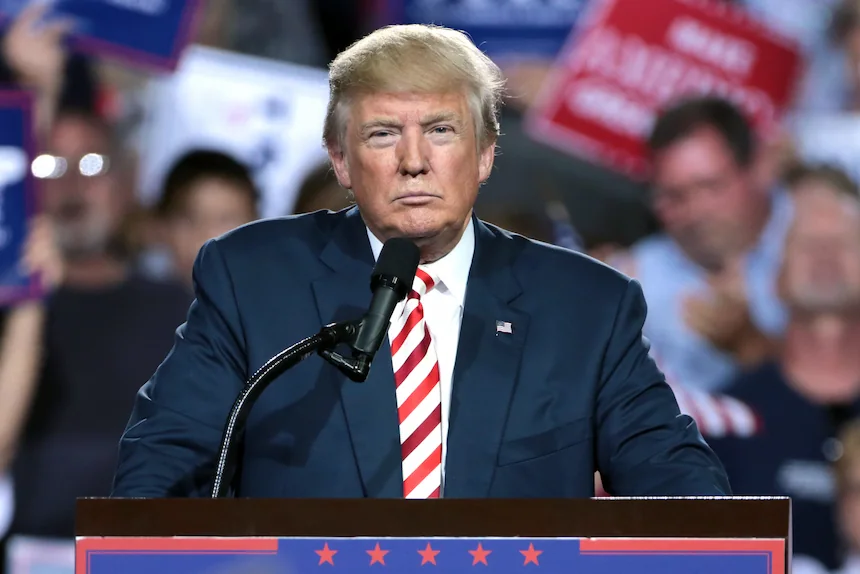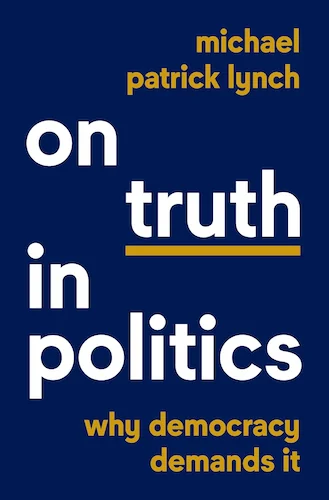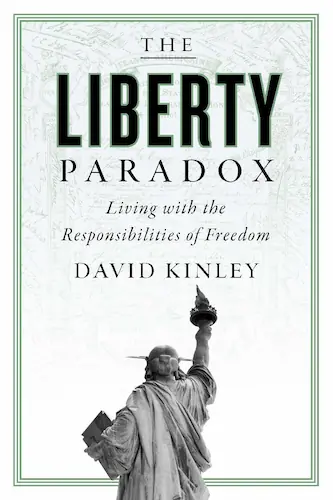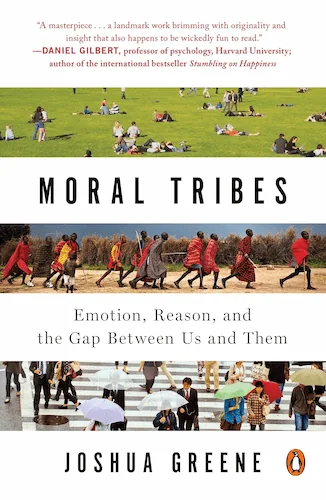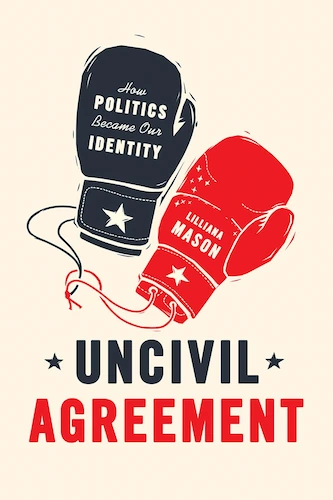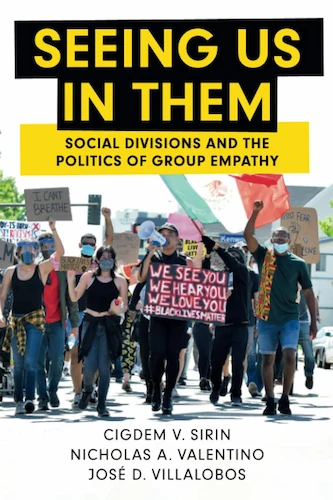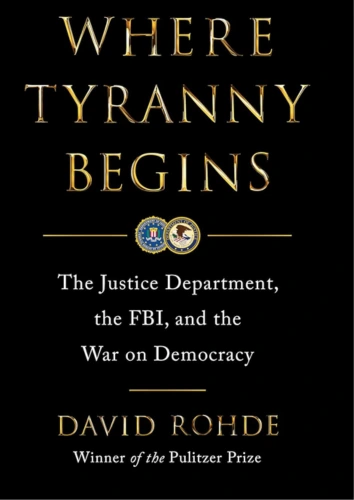The Signs of Authoritarianism in the United States
As millions of Americans are learning, it isn’t hard to tell when you are living in an autocracy. The signs are clear: secret police rounding up people without charge, the executive branch disobeying court orders with impunity, and the Great Leader attempting to dictate the truth about the present and rewrite the truth about the past. The first two signs are appearing in the United States as I write this; the third has been flashing frantically for the entire decade Trump has been dominating U.S. politics. But it is now glowing solid red.
- The Signs of Authoritarianism in the United States
- Attacks on Epistemic Infrastructure and the Value of Truth
- Truth and Politics in Modern Philosophy
- Truth Beyond Correspondence and the Role of Evidence
- The Authoritarian War Against Evidence-Based Institutions
- Truth, Pluralism, and the Foundations of Democratic Politics
- The Psychological Obstacles to Truth in Politics
- Explore Books Written by Our Contributors
- Institutional Safeguards for Democratic Truth-Seeking
When you think about the Trump administration’s attack on truth, it is tempting to focus just on the outrageous lies: Climate change is a hoax! War plans aren’t war plans! But while these bald-faced lies are important, the concerted effort to defund, undermine, or just eliminate museums, universities, and public schools is more dangerous.
The emerging authoritarian government in America teaches us is that neither value, truth nor democracy, can be taken for granted.
Taken together, these efforts constitute a direct attack on the United States’ epistemic infrastructure—that is, on the institutions and normative structures that allow citizens to pursue accurate and reliable information.
Attacks on Epistemic Infrastructure and the Value of Truth
The attack on epistemic infrastructure is bad for all sorts of reasons. It dumbs down the populace and opens them to greater manipulation, it weakens the country’s ability to respond to crisis, and it means it is more likely that we’ll repeat the past because we’ve ignored it.
But it also teaches us a philosophical lesson about the nature of real democratic politics— a lesson that authoritarians have always intuited naturally, but which, somewhat astoundingly, many democratic theorists in the 20th century denied. That lesson is that the value of truth and the value of democratic politics are deeply intertwined. The less we protect and promote reliable ways of pursuing accurate information, the less democratic our politics will turn out to be, and the more vulnerable we are to authoritarians.
Democratic politics, as I use the term, refers to respectful, inclusive deliberation between free and equal citizens about what society ought to do in the face of collective problems. Democratic politics in this sense is not a kind of government. It is a practice, a political form of life, which emphasizes rational debate over the brute employment of singular power. It is precisely the kind of politics not being practiced in Washington, in part because it is precisely the kind of politics that must retain truth as a fundamental value.
Truth and Politics in Modern Philosophy
It may surprise you to hear that this hasn’t been a widely shared opinion in political theory and philosophy—at least, perhaps, until recently. Hannah Arendt famously speculated that it may even be the “nature of the political realm to be at war with truth in all its forms.” And for many democratic theorists, Arendt’s “war” between truth and politics is actually worse when it comes to democracy.
When seeking truth in democratic politics, we seek coherent answers that would hold up to the evidence in the long run.
For those like Richard Rorty, for example, the conflict between truth and democratic politics is truth’s fault. The concept of truth is just too ethereal, too metaphysical to be of any help in real democratic deliberation. Moreover, it carries authoritarian connotations. Here the argument is historical: truth or falsity has often been identified as the sole province of kings, of the colonialists, of those who held power. To claim that this or that political judgment is true, therefore, can seem like an attempt to push one’s own viewpoint, to express power.
Such worries are understandable. The concept of truth, like any important philosophical concept, has its baggage. But the basic idea of truth isn’t that difficult to understand, and it isn’t antidemocratic. In the most basic sense, true propositions are those we seek when sincerely asking questions; they are propositions that accord with the way things are, not as we hope or believe them to be. To grasp the concept of truth is to accept that there may be some true propositions we may never believe, and that believing doesn’t make it so—no matter how powerful the believer might be.
Truth Beyond Correspondence and the Role of Evidence
So the concept of truth is not that complicated. But you may still wonder how it applies in politics. That’s in part because philosophical tradition has often identified true propositions as those corresponding to Something Else—e.g., the will of God or the structure of the world “in itself.”
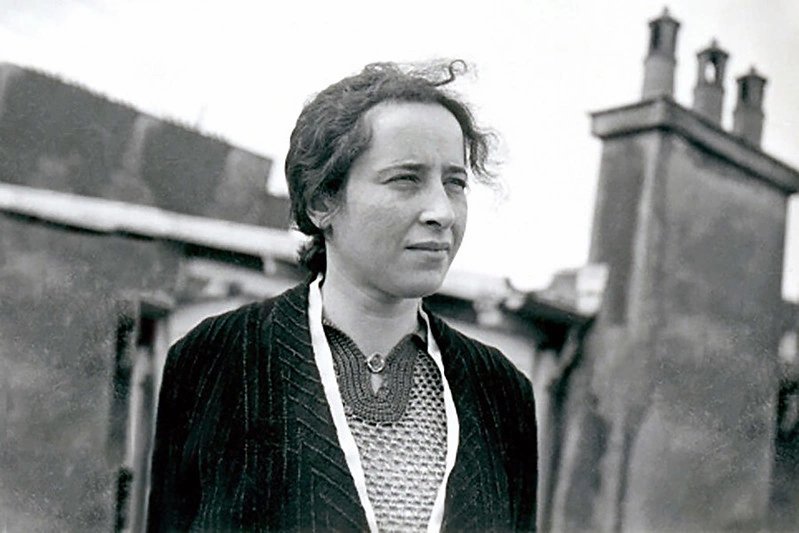
The correspondence theory can make sense when it comes to judgments about things like cats and cars. But it seems naïve or even an overt invitation to authoritarianism when applied to politics—where, to invoke the American pragmatist William James, the trail of the human serpent is over everything.
To value truth in democracy just doesn’t mean that everyone must believe the same things.
Fortunately, “correspondence” is not the only option for making sense of how political judgments can be true. The founder of pragmatism, Charles Sanders Peirce, suggested that when sincerely asking questions, we seek answers that survive the fires of collective experience, that stand up over time to serious inquiry.
Applied to the judgments we make during democratic politics, truth is what emerges from a process of constant testing, revision and attention to the evidence—including, obviously, empirical evidence. That means that in order to be true, a political judgment must also fit the facts outside of politics too. Facts about the climate, about diseases, about the far side of the universe, all matter. Political judgments that are incoherent with these human-independent facts, no matter how seductive, will always turn out to be wishful thinking.
The Authoritarian War Against Evidence-Based Institutions
This is precisely why the White House is so aggressively attacking those institutions that are in the business of distinguishing wishful thinking from data-based science, bullshit from fact. Universities and the media give us the tools we need to speak truth. But to the authoritarian, truth must never be allowed to speak back to power, for doing so risks their ideology being exposed for what it is, as a kind of politics that does not hold up to rational scrutiny.
At root, the authoritarian wishes to make people value true belief less than loyalty to an ideology or even a person. That’s the whole point of the half-truths, bald-faced lies, and sheer contradictions that the Trump administration repeats on a daily basis. The idea is to force a choice between loyalty to the Great Leader or loyalty to the facts.
Repeatedly forced to make such a choice, the will begins to waver. First one goes along and acts as if something false is true (climate change isn’t really happening, or Canadians really want to be part of the U.S. etc.). Do that enough, and one simply stops caring whether what the Great Leader says is really true. All that begins to matter is that he said it.
And that, of course, was the point all along.
Truth, Pluralism, and the Foundations of Democratic Politics
So the concept of truth is not too spooky to apply in politics. When seeking truth in democratic politics, we seek coherent answers that would hold up to the evidence in the long run. And surprisingly, that seems to be something that authoritarians understand all too well. If you want to end democratic politics, then control what passes for truth in society; and if you want to control that, control the institutions that deal in evidence.

Yet worries about the concept of truth aren’t the only reasons philosophers have thought there is a tension between truth and democratic politics. For many democratic theorists—including, perhaps, John Rawls—the source of the tension is the idea of democracy—not the idea of truth.
A central Rawlsian observation is that in a democracy, there is always going to be a plurality of reasonable political viewpoints. You might think that the very idea of political truth is antithetical to accepting this pluralism. If one understands pluralism as requiring that we treat all reasonable political views with equal respect, then it may seem unequal or exclusionary to label some as true and others as false. Rather, we should keep political discussion focused on what is “reasonable” or “unreasonable.”
We rationalize, we listen to only what we want to hear; we are biased, prejudiced, and think with our gut.
I, for one, have never really understood why the language of “reasonableness” is supposed to be more measured and egalitarian than the language of truth. Moreover, whatever one means by “reasonable”, there will presumably be truths (and falsehoods) about which political viewpoints meet that standard—again, however defined. And even the Rawlsian will agree that those truths matter quite a bit in public discourse.
But put these technical points aside. The more fundamental point is that to value truth in democracy just doesn’t mean that everyone must believe the same things. That’s not even possible, let alone democratic. Valuing something means caring about it—pursuing it. Accordingly, valuing truth means protecting, promoting and participating in those institutions and practices that help us to reliably pursue the truth—to acquire knowledge as opposed to lies, fact rather than propaganda. I take this to be a central lesson of John Dewey’s work, who, during the nineteen-twenties and thirties, lived through an earlier era of fascist, “America First” movements in the United States.
For Dewey, the problem of encouraging more rational public deliberation was the problem of politics. That’s because to engage in democratic politics, we must engage with others in a space of reasons—treating each other as capable of basing our opinions on evidence. The basic idea here is that in democratic politics, we must treat each other as having (at least potentially) equal agency. In treating each other as equals, we take each other to be capable of making choices—choices about how to act, but also about what to believe. And that means we owe each other reasons—evidence—for our views.
The Psychological Obstacles to Truth in Politics
You might still worry that ideal of democracy as a space of reasons is naïve. Humans, after all, seem psychologically hardwired to ignore whatever contradicts their political beliefs. When it comes to politics, reason often goes mute, or it becomes, as the philosopher David Hume famously said, the slave of the passions.
We rationalize, we listen to only what we want to hear; we are biased, prejudiced, and think with our gut. We tell ourselves “we” know and “they” don’t, even when what we “know” is obviously wrong. Decades of psychological research have borne this out. The political brain is not often the rational brain, it is the conforming brain. And that’s even before we get on social media.
Explore Books Written by Our Contributors
This is a serious point, but it shouldn’t make us give up on the idea that truth in politics is still possible. For one thing, human psychology is not fixed and invariable across all historical contexts—let alone across all people. Moreover, humans can compensate for their frailties. We may be naturally poor reasoners, and we may be terrible at being objective about whatever matters to us.
Yet that is precisely why well-functioning democratic societies establish rules for governing our acquisition and distribution of knowledge—that is, true or accurate information. These epistemic rules are typically embedded as professional norms meant to compensate for our biases and prejudices. Such rules include: journalists should use more than one source, criminal prosecutions must be based on evidence, and scientific papers should be vetted by peer review. In each case, the rule is in place to correct for our natural tendency to ignore evidence, believe whatever compliments our opinions and think our own ideas are always “big and beautiful.”
Institutional Safeguards for Democratic Truth-Seeking
The hope of democratic politics doesn’t rest on each of us being perfectly logical, data-driven machines. The hope of democratic politics rests on us having institutions that help us compensate for our frailties by getting us to play by the rules of evidence, the rules of what Peirce called “concordant” inquiry.
Those institutions and the disciplines that compose them—education, journalism, science, and history among others—are what help us pursue the goal of having true beliefs about the world. They are the foundations for the “epistemic infrastructure” I mentioned above. And that is why the biggest threats to truth’s value for democracy are threats to those practices and institutions.
The idea that truth isn’t an important value for democratic politics may have seemed sensible at the end of the twentieth century, when democracy was ascendant. At a time before social media, before widespread misinformation, before the reemergence of fascism, it was easier to assume we knew what truth was and that people cared about it. It was also easier to assume that about democracy. But what the emerging authoritarian government in America teaches us is that neither value, truth nor democracy, can be taken for granted. Both are fragile, in part because they intertwine. Our ability to pursue them can disappear in an instant.


